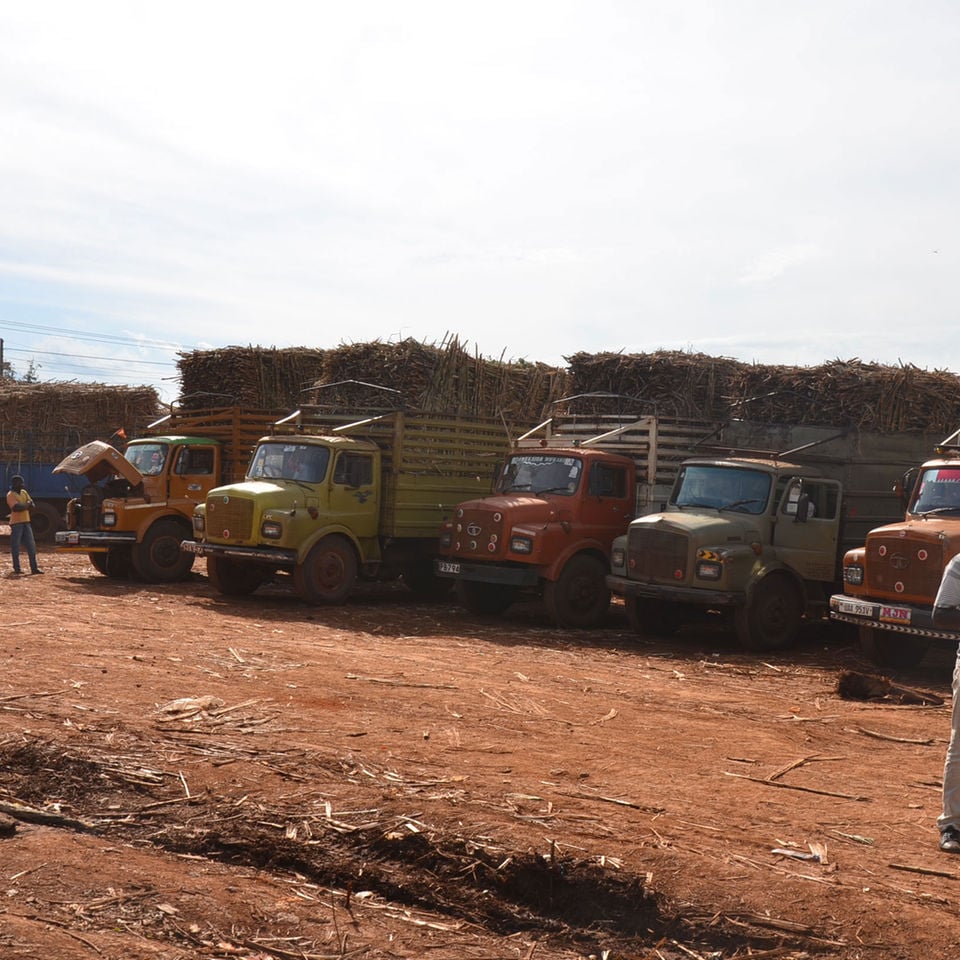Museveni to sugar firms: Grow own cane to stabilise supply, prices

Trucks loaded with sugarcane at a factory in Mayuge. Although the volume of sugarcane produced and value exported has increased three fold over the last two decades, poverty is still prevalent within sugarcane growing communities. PHOTO/TAUSI NAKATO
What you need to know:
- According to the President, the current shortage of cane is due to the large number of freelance growers who rushed in cane growing, leading to over production, which led to low demand within East Africa because of trade barriers.
- In July, sugar retail prices across the country shot up after three of Uganda’s biggest mills admitted to an acute shortage of mature cane.
President Museveni has urged sugarcane companies to grow their own cane so as to stabilise the sugar prices.
According to the President, the current shortage of cane is due to the large number of freelance growers who rushed in cane growing, leading to over production, which led to low demand within East Africa because of trade barriers.
“I told you sugar companies, you should grow your own cane,” Mr Museveni said.
According to the President, consistent supply of cane to the sugar companies will result in stable production and pricing.
“And stabilisation means we give confidence to our buyers,” he said.
He was yesterday meeting members of the Presidential Advisory Committee on Exports and Industrial Development (PACEID) at his country home in Kisozi, Gomba District.
The President also asked sugar growers to adopt the model of the British American Tobacco (BAT) of using known and registered or contracted out-growers not just freelance one.

President Museveni (R) meets the Presidential Advisory Committee on Exports and Industrial Development at Kisozi farm on October 20, 2022. PHOTO/ PPU
“So that’s your mistake. If you take my formula of a nucleus farm plus registered, contracted and known large scale or medium scale out-growers, this will be solved,” Mr Museveni said during the meeting also attended by members of Uganda Sugar Manufacturers Association and investors.
In July, sugar retail prices across the country shot up after three of Uganda’s biggest mills admitted to an acute shortage of mature cane.
In the same meeting, the President asked the Presidential Advisory Committee on Exports and Industrial Development to discuss with sugar companies together with the Ministry of Trade and Industry to establish a regulatory arm that will deal with the issue of sugar quantities and pricing.
“We are going to meet now with the sugar people and execute the things you have said here,” said Mr Odrek Rwabwogo, a Senior Presidential Adviser on Special Duties, who also chairs the Presidential Advisory Committee on Trade and Industrial Development.
The Presidential Advisory Committee on Exports and Industrial Development was established in March by the President to address operational bottlenecks that are impeding trade.
The meeting was attended Mr Mahmood Nudda, who deals in export of fruits and vegetables, and Mr Sean Flanagan of Commodities Partners who wants to buy and export Ugandan sugar. Mr Museveni assured Mr Flanagan of a ready market for Ugandan sugar within the region.
“I can assure you that here you can make money. You should target the internal market of this huge continent because I am a witness,” the President said.




